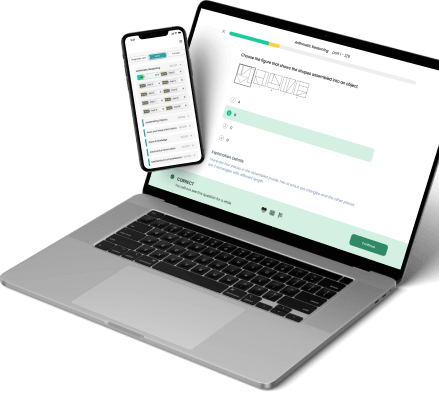Fun & effective Phlebotomy practice test tool to pass with flying colors
All-in-one platform with everything you need to ace the Phlebotomy on your first attempt
Clear and Thorough Learning Path
Proven PHLEBOTOMY 3-step Practice Formula
After our 100,000+ users' success stories, we developed a 3-step strategy to provide you with the most precise and in-depth learning path while minimizing your prep time.Phlebotomy Diagnostic Test
First, take this short test and get your detailed report showing your strong and weak areas. Save your time by concentrating on what is in demand.Learning
With quick, bite-sized learning techniques and a detailed study guide for each Phlebotomy section, you can really strengthen your weaknesses (from step 1) and boost your scores.Phlebotomy Full Test
The last step for your preparation is taking our full Phlebotomy practice tests and seeing how far you've come since the beginning. Repeat the 3-step formula until you are satisfied with your results!Ready to start?
Thousands of Phlebotomy users already accomplished their goals.NOW it’s your turn!

What You Get
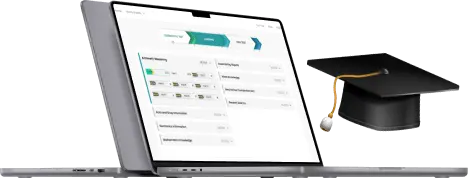
All-in-one platform
A complete Phlebotomy Prep Platform, including a diagnostic test, detailed study guides for all topics, practice questions with step-by-step explanations, and various full simulator tests.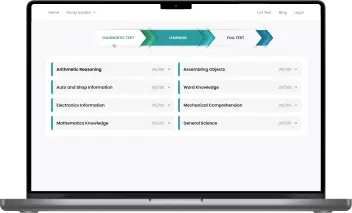
Questions nearly identical to those in the real Phlebotomy test
All questions are categorized into the specific sections as on the real Phlebotomy: Same format & same difficulty!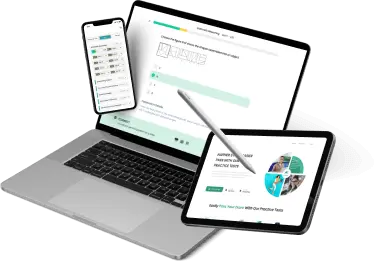
Best for the busy
Easily & quickly grasp all the knowledge with our unique learning technique. And you can learn anytime, anywhere on any devices, even with a few free minutes.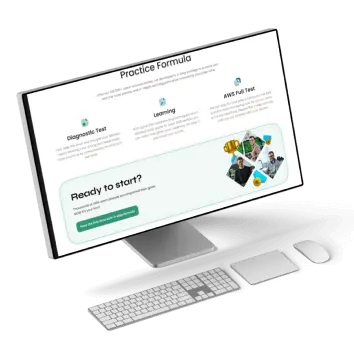
Practice while having fun
Learn and play! Complete round-by-round to reach your daily achievement and make progress on your learning journey!Featured on















What our users are saying
Over 50,000 aspiring American candidates use Phlebotomy monthlyPhlebotomy Practice Test Comprehensive Guide [2024 Updated]
Phlebotomy is a field that calls for a significant degree of specialized training before one can begin working in the field. As a result of this, anyone who wants to work as a phlebotomist in any part of the nation must first demonstrate that they have achieved all of the essential competencies before they can get their official licenses.
Check out our collection of free Phlebotomy Practice tests if you want the most up-to-date genuine questions and answers for certification tests administered by the NHA, ASCP, AMT, and other organizations. Utilize our completely free Phlebotomy practice examinations to help you get ready for your next exam (updated for 2024).
What is Phlebotomy?
Phlebotomy is the term used to describe the process of drawing blood from patients or blood donors. Phlebotomists are the medical specialists that are responsible for performing these procedures. Phlebotomists are required in healthcare settings such as hospitals, clinics, diagnostic laboratories, and blood donation centers. By giving them blood samples from patients, they help doctors properly detect disorders. Phlebotomists are also responsible for the following additional jobs and responsibilities:
-
Describing to the patient why blood is being drawn
-
Determining a patient's capacity to resist the procedure of venipuncture, which involves puncturing a vein to remove blood,
-
Assisting patients in feeling at ease during the procedure
-
Reading basic vital signs including blood pressure and blood sugar
-
Maintaining the medical tools and supplies they have authority over
Phlebotomists are required to have a high school diploma or the equivalent, as well as to have completed a training program in phlebotomy, which may take anything from four months to an entire year to complete. Allied medical professionals, such as nurses and certified nursing assistants, may choose to earn a phlebotomy certification so that they may broaden the range of skills that they bring to their jobs.
In a number of settings, having your phlebotomy certification under your belt is necessary before you can begin working. You will be able to better present yourself as a quality candidate with the assistance of an industry certification, which will increase your chances of securing a job or a higher income regardless of where you choose to perform the profession.
Types of Phlebotomy Certifications
There are many different types of phlebotomy certifications that you may earn, and the one you choose will depend on the area of concentration that you want to go into. For each of the certifications, there is a list of conditions that must be fulfilled, which may include specific paths, the required number of training hours, and other items.
If you are interested in obtaining more information about phlebotomy, the following is a short list of the many types of certifications that are available to you.
Phlebotomy Technician Certification (PBT-ASCP)
The Phlebotomy Technician certification is made available by the American Society for Clinical Pathology, also known as the ASCP (PBT). Only those individuals who have fulfilled the necessary academic and clinical qualifications will be allowed to take this test. Your ability to get the PBT certification demonstrates that you are capable of reaching the required standard of achievement on the test and that you are eligible to function as a phlebotomist.
The Phlebotomy certification test consists of 80 multiple-choice questions, all of which must be completed within a time limit of two hours. On the PBT test, there are a total of six different subject matters:
- Circulatory System
- Specimen Collection
- Specimen Handling, Transport, and Processing
- Waived and Point-of-Care Testing (POCT)
- Non-Blood Specimens
- Laboratory Operations
For you to be eligible for this certification, you will need to first get your high school graduation and then finish a recognized phlebotomy training program. In addition to that, you need to have completed a total of 100 hours of practice and 40 hours of teaching in a classroom setting. In addition, phlebotomy training and a medical degree are prerequisites for this position. It would be good to have at least one year of experience working as a phlebotomy technician at a facility that is accredited.
Phlebotomy Technician Certificate (PTC-ASPT)
The American Society of Phlebotomy Technicians offers training and testing that may lead to certification in this specialty. In order to keep your certification current with the ASPT, you are required to complete a minimum of six hours of continuing education each year.
You will need to meet at least one of these criteria in order to be eligible for this certification. There are many requirements that must be met before you can apply for this certification.
- One whole year working as a phlebotomist on a part-time basis
- Six months working as a phlebotomist on a full-time basis
- A letter from a supervisor in the healthcare industry stating that one of the work responsibilities involves the routine collection of blood samples is required.
- Completion of a phlebotomy training program that is approved, which must include 75 recorded successful venipunctures and 5 documented skin punctures, as well as a current membership in the ASPT.
Certified Phlebotomy Technician (CPT-NHA)
The National Healthcareer Association makes it simple to get certification in their field. There are several different levels of certification that may be earned. First on the list is a Limited Phlebotomy Technician, then a Certified Phlebotomy Technician 1, and finally a Certified Phlebotomy Technician 2.
Registered Phlebotomy Technician (RPT-AMT)
The Registered Phlebotomy Technician (RPT-AMT) certificate is granted by American Medical Technologists. You must have graduated from an approved phlebotomy training program within the last four years in order to be eligible for this certification. In addition to this, you need to have worked as a phlebotomy technician for at least 1040 hours over the course of the previous three years.
It is required that you have served in a teaching capacity for a health-related program for a minimum of three years. And last, if you already possess a phlebotomy certification from another organization, American Medical Technologists will only charge you a one-time, flat fee for the certification.
Certified Phlebotomist Technologist (CPT-NPA)
This certification is made available by the National Phlebotomy Association, and all that is required to get it is the fulfillment of a certain minimum number of training hours. You are required to finish training in allied health, which will include instructions on how to do venipuncture.
This specific set must contain at least 360 hours of teaching, including 200 hours of practice in the hands-on setting and 160 hours of instruction in a traditional classroom setting. You will need to present the National Phlebotomy Association with any proof of this fact in order to get your certification.
American Medical Certification Association (AMCA)
The Phlebotomy Technician Certification offered by the AMCA requires a minimum score of 69 percent in order to pass. The Phlebotomy Technician Certification that is made available by the AMCA consists of a test that has 100 questions and must be finished within two hours. On the exam to become a Phlebotomy Technician, you will be tested on the following five topic areas:
- Patient Care
- Patient ID and Site Prep
- Order and Equipment Selection
- Specimen Collection/Processing
- Safety and Infection Control
After successfully completing a clinical training program, candidates for the Phlebotomy Technician Certification test are required to demonstrate that they have performed a limit of 30 venipunctures and 10 capillaries.
Phlebotomy Test Cost
The cost of the phlebotomy certification exam will vary depending on the test you choose to take and which route you select to get certified. The expenses of a few tests are shown in the following table. Verify with the relevant authorities in your state to find out which examinations you are required to take.
|
Phlebotomy Certification Test |
Testing Fees |
|
American Society for Clinical Pathology (ASCP) |
$135 |
|
Association of Phlebotomy Technicians (ASPT) |
$60-$90; depending on membership status |
|
American Medical Technologists (AMT) |
$120; includes application, test, and first annual fee |
|
National Center for Competency Testing (NCCT/MMCI) |
$90-$135; depending on the route of qualification |
|
National Healthcareer Association (NHA) |
$117 |
|
American Medical Certification Association (AMCA) |
$109- includes study materials |
Since candidates are responsible for paying their own way for the Phlebotomy Certification Exams, it is strongly recommended that you take advantage of any and all free phlebotomy practice tests and other resources that are accessible to you.
How Hard is the Phlebotomy Certification Exam?
If you put in the effort to study for the phlebotomy certification test and perform well on it, you shouldn't find it too challenging to get certified in the field. The number of questions on the test might range anywhere from one hundred to two hundred. Having said that, the material that is going to be covered on these tests won't ever change.
The majority of firms stipulate that you must properly answer at least 70 percent of the questions on this test in order to pass it. Therefore, in order to receive your phlebotomy certification from the organization you choose to get that from, you will be required to have particular knowledge.
In order to be qualified to take this exam, some companies demand that you have already participated in an education or training program. The information and practice questions on this exam will be covered in detail throughout the training sessions that you will participate in. In addition, you may find study guides and practice tests, both of which are available for free online, to help you prepare as thoroughly as possible for the examination.
Phlebotomy Practice Test Tips
It's fantastic that you've chosen to pursue a profession as a phlebotomist. There is a huge need for additional phlebotomist experts despite the fact that there are over 122,700 of them in the US ( the Bureau of Labor Statistics).
Phlebotomist employment is predicted to increase at a rate of 25% between 2016 and 2026, which is much higher than the average for all other occupations.
As you may already be aware, you must pass the phlebotomy exam in order to enroll in a school to become a phlebotomist. Here are a few very efficient CPT exam passing techniques.
Consider It a Marathon Rather Than a Race
That is correct! Studying for the phlebotomy exam should be approached similarly to training for a marathon. Rarely do long-distance runners practice by running the full distance. Instead, they exercise for longer periods of time at relatively shorter distances. The wiring in your brain is the same. You need to utilize your short-term memory to learn, study, and memorize. When studying, try to follow the marathon preparation strategy, which involves taking frequent breaks and shorter concentration intervals.
This method is referred to as "chunking." Chunking is a technique used to group separate bits of information together in cognitive psychology. It is thought that when things on a list are recognized as a group rather than as individual objects, people form complex mental representations of the group as a whole.
Recognize Your Preferred Learning Method
Everyone has a somewhat distinct learning style, and by this point, you probably know what it is. Drawing out preliminary drawings could be beneficial if you learn ideas best when information is presented visually. There are many lectures and podcasts on YouTube that cover your exam topic if you study best via aural means. Make a study team to go over subjects if you find that you learn best via conversation.
Consider Your Study Time to be Working Time
Can you arrive randomly at work? Obviously not! You should treat your learning time the same way you would your planned work hours. Make a study schedule and stick to it. The error of waiting until the last minute of a hard day or attempting to fit it in on the weekends is committed by far too many individuals. That seldom ever succeeds.
Keep in mind that shorter learning sessions are preferable to longer ones. Utilize lunch breaks, doctor's appointment wait periods, and even commute times (if not driving). The waits are usually at least an hour long, which gives me plenty of time to complete practice questions.
Making Study Breaks
Even though it seems obvious, many individuals overlook this important piece of advice. You cannot study nonstop. It's not possible, so trust us. If you attempt it, you will get exhausted, lose attention, and just begin squandering time. It's crucial to have pauses in your study schedule. Your mind will rest between breaks, keeping you alert and prepared for new information.
Just be careful not to overdo your study breaks. They are part of the routine to improve learning effectiveness. They shouldn't function as a diversion, however.
Invest in Yourself
That's accurate. Any investment you make that you believe would be beneficial will undoubtedly be profitable. Online study programs, audio programs, sample tests, and test-taking applications are all helpful. Find out what suits your learning style and give it a try.
You are discussing a job that may earn you significant amounts of money over the course of your lifetime, after all. You may get enormous profits on this little investment.
Practice Questions
The finest and most crucial strategy to prepare is to take practice examinations. But answering the practice test questions is simply the first step. Looking up questions that you misunderstood is crucial. Practice question banks highlight the specific subject area each answer option pertains to as well as provide justifications or rationales for why each response is right or wrong.
Look for online tools or applications that keep track of your development and let you retest yourself in the areas or categories where you require the greatest improvement.
Take Pride in Yourself
Above all, have confidence in yourself. You have likely reached this phase in your study on testing techniques since you have likely previously fulfilled all the other prerequisites. Congratulations are in order since this is only the last leg of your fascinating and new trip. Now, increase your self-assurance and go through the last obstacle on the way to a successful phlebotomy profession.
Passemall NHA Phlebotomy Practice Test 2024
Free Practice Questions: 850+ free Phlebotomy practice test questions with detailed explanations are available for all of the required skills. All you need to pass your recruitment test is available here.
Phlebotomy Practice Tests Based On Real Tests: Same number of questions, same time limits, same structure. The exam simulators let you familiarize yourself with the test format and get totally ready for the real one.
No Sign-Up Or Login Required: All of your progress is saved without an account, even if you close your browser. But login can sync your data between web and mobile applications.
Gamification: The learning process will be divided into small milestones. Let’s make your studying exciting as if you were in some interesting games.
Personal Study Plan: Just enter your Phlebotomy test date, and a study plan will be set up for you. A clear schedule will surely exceed your expectation and get you the best preparation for the reading shot.
3 Interesting Test Modes: 3 different test modes with increased difficulty levels let you experience phlebotomy practice tests in various ways.
Dark Mode: Experience a dark theme that is more friendly to your eyes, and get a whole new and marvelous experience.
No Internet Required: Study on the go conveniently without any Internet connection.
Phlebotomy Test Bank: 3 features: Weak/ Medium/ Strong questions help you clearly determine which area you should pay more attention to.
How to Utilize Our Free NHA Phlebotomy Practice Test?
When you're ready to begin taking practice tests, follow these steps:
- With your notes and study guide close at hand, take the first test without a time limit. Put the strategies you have learned into practice and take your time.
- Consider setting a timer and pacing yourself to complete the second Phlebotomy practice test free "open book" as well.
- Practice any other tests as if it was test day. Put your study materials away and set a timer. Imagine yourself sitting at a desk in the testing center, answering questions as quickly and accurately as possible.
- Phlebotomy National exam practice test is best taken regularly until you run out of them or the actual test is approaching. This will prepare your mind for the test day schedule and stress, so you can concentrate on recalling the material you've learned.
How Do Our Free Phlebotomy Practice Tests Work?
Based on the official National Phlebotomy Exam Practice Test
We have to say our Phlebotomy practice exam questions are collected and updated carefully based on the annual real estate test. In order to be as similar as possible to the real test, we constantly improve the quality as well as quantity of our Phlebotomy practice test questions.
Detailed explanations
We also offer detailed explanations for every Phlebotomy quiz, which help you understand the roots of the issues and rarely make that mistake again, so you pass the test the first time!
So friendly to users
Our free NHA phlebotomy practice test is designed to be fun and easy to use which helps you feel more interested while doing tests.
Why you should study with Passemall NHA Phlebotomy Practice Test 2024?
These are all the benefits of using our NHA Phlebotomy Practice Test:
- Study anywhere at any time without an Internet connection.
- Your own study plan will be set up automatically according to your test date
- 3 features: Weak/Medium/Strong questions help you clearly determine which area you should work harder on.
- Customize your study reminder to receive a notification at any time you want
Phlebotomy Practice Test FAQs
Which Phlebotomy Test Is the Best?
It is essential to check with one's own state to see what kinds of licenses or certifications are necessary to work as a phlebotomist since the requirements for each state are different. As a direct consequence of this, there is not a single exam or training program that is recognized on a national level for becoming a phlebotomy technician. ASCP, ASPT, AMT, NCCT/MCI, NHA, and AMCA are the 6 routes to certification that are most often acknowledged.
Do I Need a License for Phlebotomy?
Each state has its own requirements to meet in order to become a phlebotomy technician, including licensure and certification requirements, as well as any other qualifications that may be necessary. Make sure you are familiar with the phlebotomy rules in your state before beginning any kind of phlebotomy education program.
What Mistake Happens the Most Often in Phlebotomy?
The three most common mistakes that may be made with medical equipment include inadequately sterilizing the device, using the wrong needle gauge, and maintaining the tourniquet on the patient for an excessive amount of time. During your training to become a medical laboratory technician, you will be taught how to make appropriate use of medical equipment in order to avoid making mistakes of this kind.
What is Required to be Admitted To a Phlebotomy Program?
The completion of high school or education that is functionally equal to this level is often required to enter a phlebotomy training program. Check with the program you're interested in enrolling in to see if there are any further prerequisites you need to meet before you can be accepted.
What is Higher Than a Phlebotomist?
Phlebotomists have the potential to earn less than physician assistants, who need a master's degree from an accredited university to work in the field. Physician assistants, on the other hand, have the potential to earn more than registered nurses. After gaining some experience as a phlebotomy technician, you may decide to further your professional development by pursuing a subspecialty in order to increase the amount of money you may make. Phlebotomy specialists often bring in a much greater salary.
The Bottom Line
Phlebotomy is an important aspect of medical practice, and earning a Phlebotomy certification may be very beneficial to your future as a medical professional. In order to successfully fulfill your certification requirements, it is highly recommended that you enroll in a Phlebotomy Practice Test to absorb fundamental knowledge and skills.






